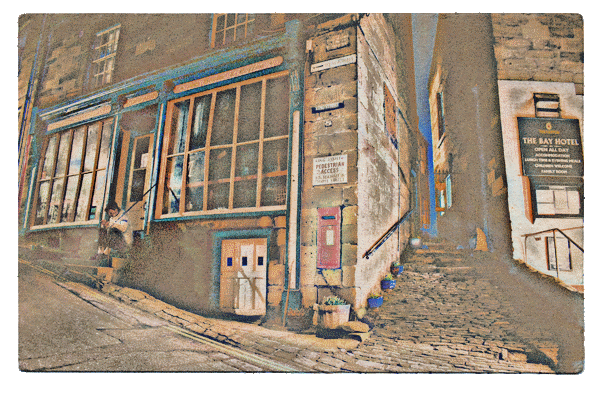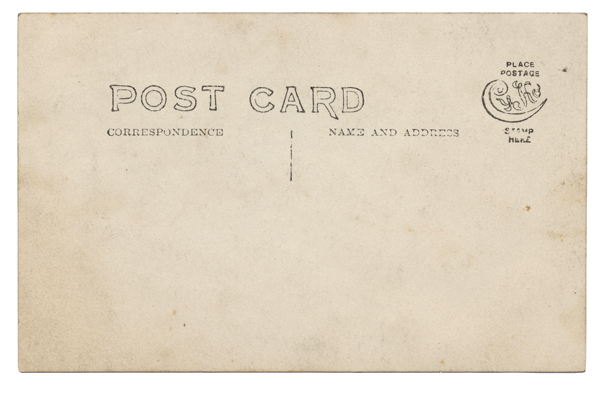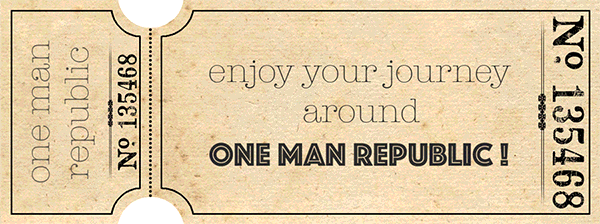questioning
random sharing

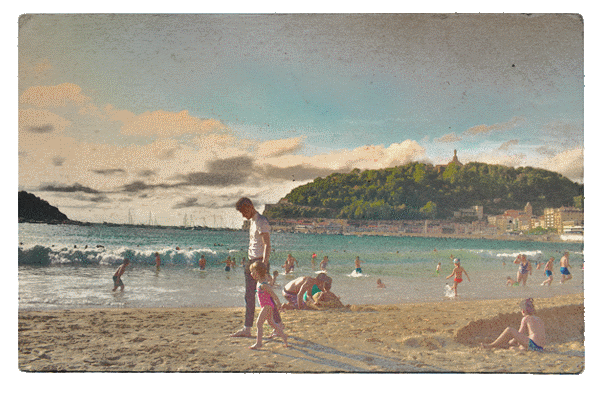
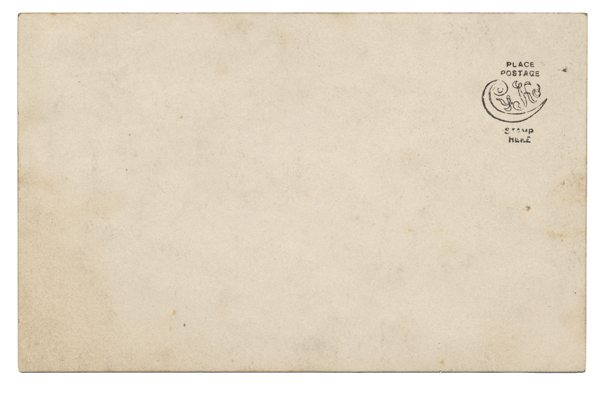
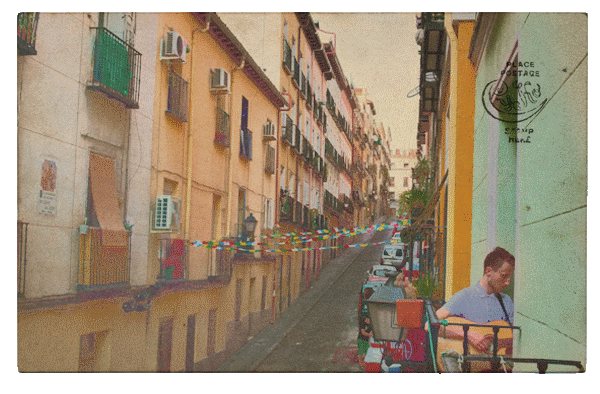



Before leaving for Italy, I found out that I was going to be a father. This is probably the largest amount of information and energy you could possibly receive in as little as a few seconds. I was condemned to the absolute questioning of the world and my relationship with it as I was wandering through the streets of Italy.
But let’s go back a bit - a while ago, I studied at the institute named after Jimmy Slyde (Barcelona, Spain), who was one of the most famous tap dancers in the world. Occasionally, my teacher’s four-year-old daughter would run into class. I realized that she saw her mother for who she truly was - a dancer and dance teacher. I also realized that no matter how much you lie to people about who you are, you’ll never be able to fool your own child. For example, if you’re some sort of a manager and believe that whenever the chance comes, you’ll surely conquer the world as a famous musician or painter, whereas your child only sees you as someone who always gets hundreds of meaningless phone calls, then all you really are is someone who always gets hundreds of meaningless phone calls. If you work at some huge corporation and have a stupidly long name for your position, like, for example, Super Duper Deputy Chief Specialist of the 6th Vilnius Division, always bragging about the number of responsibilities you have and how important you are, whereas your child just sees you as an angry, corrupt, and tired person, then all you are is an angry, corrupt, and tired person.
Thankfully, I always followed my heart no matter what I did in life. I never lied to myself or lost track of my life. However, the birth of a child always messes up your normal rhythm and routine, so lots of people stop questioning the world at this point and begin to drift away from themselves. As I was wandering the Italian streets, I was trying to gather my energy and prepare my body and thoughts to ensure that once my child is here, I won’t give up on the things that I’m meant to do.
I needed even more strength at the very beginning - when I first heard the news about becoming a father and had to accept it with my whole body. Two aspects made this task even more difficult.
First of all, I always question every single thing I do in life in the context of decades or even centuries. Decades/centuries of the past, the present, or the future. Therefore, I never really cared about how my actions were materializing in the short term.
However, when people question the world, they usually consider the short term, focusing on social, financial, and other securities. But of course, all of these securities are purely utopian. Nevertheless, the demons inside each of us sometimes completely take over, which is when you begin to think that the people who are desperately reaching for all of these mystical securities should be the first ones to set good examples at raising their children.
Another aspect that made it difficult for my body to comprehend the arrival of my daughter was a very mundane thing - age. I have a few friends in their thirties and I often ask them when they’re finally going to decide to settle down and have kids. It seemed to me that age was an important aspect in determining whether you’re ready to set an example at raising your own child.
I mostly managed to overcome these two clichés, these two demons, when my girlfriend told me that I’d demonstrated strength my whole life and that God finally put his hand on my shoulder and told me, “Everything is fine, Andrius Romaska. Your energetics are materializing in their highest form. You’re in the lead of your environment and your friends. Everything is fine”.
Of course, “energetics” is a very difficult concept to rationalize and define. And although this word is rather common in my dictionary and my philosophy, I’ll have to put it aside for now. After all, attempting to define such processes and concepts is something like trying to mathematically prove God’s existence. Although there have been such attempts, even from such mathematic giants like Blaise Pascal.
I was first welcomed by Florence. The city I associated with the giants of art like Leonardo da Vinci, Michelangelo, Botticelli, and others. To me, this was a city that always reflected the wonderful process of the past, which was exactly what led me here.
In my head, I could clearly picture a 16th-century artist sitting in his small room in the middle of Europe, thinking that he wants to experience new things - things that didn’t exist in his own environment. Then, he simply picks up and heads to the European capital of culture - Florence. Once he arrives, he gets into various discussions about art with people he just met, analyzing them as they talk, seeing if he could be anyone’s apprentice, or receive a few orders for his artwork. And all of this is happening in real life, eye to eye, with almost no institutionalization whatsoever. The city is alive, full of energy and ambition.
Nowadays, most opportunities for improvement are hidden beneath the roofs of institutions, and institutions will always force you to turn slightly away from your true path, no matter how hard you try to resist. I myself am about to begin my Masters at the University of Leeds. And of course, to get in, I had to take the International English Language Test IELTS, part of which is having a conversation with the examiner. For a good part of the conversation, we spoke about the shopping mall Akropolis, marketing strategies, and a few other things. So afterward, I joked with my girlfriend that even if you just want to study music, you’ll have to start with some knowledge on marketing and Akropolis : ) Oh, the depths and pathways that institutionalization will take you to. But in The Castle by Franz Kafka, which is one of the few books that I view as a literary masterpiece, it’s clearly stated that institutionalization can only take you in one direction.
Kafka’s protagonist - government official K., arrives in a small town to meet with representatives of the castle. However, various bureaucratic obstacles keep getting in his way, so K. keeps getting caught in the claws of institutions throughout the whole book. In this relatively broad book, there really isn’t anything else - no hope, no result, no light - just the never-ending obstacles in trying to get to the castle. Without a doubt, bureaucracy and institutionalization are merely the reflection of human loneliness and separation, or from a religious spectrum - the separation from God. So not only in Kafka’s The Castle but also in the modern world, institutionalization is merely a reflection of these same processes, this same direction.
This is probably why I’m still reluctant to let go of things like street music, although it’s not always viewed positively by society and it’s not always easy to make a living out of it. However, it’s one of the very few areas where everyone is clearly alive and living here and now. You don’t need to go on your laptop, buy tickets online, print them, and then go to some institution where you act and look official just so you could see a concert. Everything is happening here and now. And the more glass, lifeless skyscrapers emerge in cities (where the exterior, as well as the institutions inside, visually represent how meaningless institutionalization is), the more inclined I feel to stand outside of them with my instruments and represent one of the few remaining lively figures in the abundance of skyscrapers.
In the movie Playtime, Jacques Tati was probably the most accurate in describing the feeling you get when playing music in the midst of skyscrapers. In this movie, the director perfectly and comically portrays the protagonist (who he plays himself), wandering through Paris in the seventies, unable to adapt to all of the new architecture. However, Tati is very optimistic. The director hints that this sterile, emotionless architecture is simply powerless against the beauty of all human situations, the beauty of human interactions and relationships, which take place inside and outside of these meaningless buildings. So it’s a great pleasure to see how helpless skyscrapers become against my own bagpipes.
And now Florence, which to me was the mecca of direct, pure improvement, just seemed to be reflecting the rapid decline in life. Paradoxically, The Uffizi Gallery, one of the largest galleries in the world, home to some of the most famous works of art, seemed to be screaming out, “Come take a look, here you’ll find some wonderfully preserved history full of life, full of ambition, full of creativity, which we keep as an example for you, whereas the city itself is prepared to block any attempts at such improvement, ambition, or existence of true life”. And I mean this in all possible contexts - in any sort of institutionalization, in how cities seem to be prepared not for those who are ambitious and creative but rather for the dumbest types of people - tourists (I call them “the dumbest” because nobody will ever convince me that you can only begin traveling the world after you retire and only if you have lots of money), in how architectural monuments are carefully looked after, while no new potential architectural monuments are being created, only the tasteless glass (or not necessarily glass) boxes, in how the stage for street music and street theater is constantly becoming smaller, more limited and restricted, and in how…
Of course, I just had to visit The Uffizi Gallery. As you watch the paintings, you devote about 20 percent of your attention to what is portrayed, how it is portrayed, and when it was portrayed, while the remaining energy is used similarly as it is when listening to music - you just sink into it, without trying to identify the tonality, the singer’s tone, or the instruments used. You just devote that attention to truly understanding and feeling the painting. Then you either feel it or you don’t. If you do, then you can just stand there and enjoy. Pretty simple. It was a true honor to get to know the giants of history while looking at these paintings.
I had a few observations. First of all, I would have never thought that here, at one of the most mesmerizing galleries of the world, where you can meet Rembrandt, Raphael, Leonardo da Vinci, and others, about 90% of the visitors just run up to the most famous pieces, take photos of them, then hurry to another hall, repeat the process, and finally end the tour within fifteen minutes. What a high pilotage:) I would have never believed what a huge percentage of people is being involved in this type of process. Then again, just like Florence itself, this process simply represents the direction in which humanity is headed.
Also, after about four hours of observations, I just felt tired. Well, when you think about it, it wouldn’t have been easy to listen to Mozart for that long even if he was still alive. This requires way too much energy, even considering how much energy you get from the art itself. But there was also another reason why I was feeling so tired.
When you enter an exposition hall with a dozen paintings by different artists, all identically portraying Madonna (both stylistically and energetically), you just instantly get sad and lose your energy by trying to point out at least one detail that would make you appreciate the artists and feel thankful. Sure, Raphael’s Madonna of the Goldfinch may give out a very strong and clear feeling, but all of the other artists can just be labeled as “victims of their times”.
Perhaps if they had painted a different object, or had been radically different from their colleagues of the time, we’d be thanking them for their work today. The point here isn’t to “stand out from the crowd just to stand out” (this stupid cliché can be noticed from a mile away). The point is that these artists obviously never focused purely on themselves, they never ripped away from their era, and they never created something that was truly coming from them. Instead, they were too weak and nongenius and just drowned in their era.
This is precisely why throughout this whole post, I keep emphasizing how important it is to question every single step you take in the long run. Otherwise, you’ll simply become a victim of your time.
Now that I’ve already added some visual contexts (buildings, paintings), let’s get to one aesthetic dilemma that’s been in my life for the past several years and finally culminated one night at Rome’s airport. All night long, I couldn’t close my eyes because I kept questioning two things: mathematics (but more on that later) and the mentioned dilemma.
On the one hand, most of my favorite artists speak about giving up earthly, material things, therefore also giving minimal importance to how you look and what you wear. Take Albert Einstein, for example, who stated that he didn’t understand why people threw out their clothes before they’re completely ripped, so he just wore the same leather jacket for several decades.
On the other hand, I’ve recently been catching myself keeping up with the newest collections of fashion houses like Stone Island, Fred Perry, Burberry, Dr. Martens, Ralph Lauren. Not only keeping up but also wearing them.
So my dilemma is seemingly simple and mundane, but can also lead you down deep and interesting paths - is it really worth spending your time focusing on something like wardrobe?
Without a doubt, as I was going through these thoughts at the airport, I couldn’t deny that nature is the true example of pure aesthetics. So every day, when I’m faced with the simple choice - to identify myself with nature (in this context - with its visual aesthetics) or not, it seems that there’s only one solution, which is to do what people have been doing for thousands of years - to imitate it, copy it, and stop resisting the idea that you’re part of it.
I also know that when I notice an aesthetic-looking person on the street (which happens catastrophically rarely, but more on the reasons for that later), I completely light up inside for a second or two because my body experiences a momentary catharsis of visuality. Your body can also experience such catharses in other areas (although also very rarely) - after you eat something exceptionally delicious, you experience a catharsis of taste, after smelling something very good - you experience a catharsis of smell, etc. I think that these momentary catharses are just a physical expression of the absolute perfection of nature and the world as a whole. An expression of the fact that everything is made out of an everlasting collection of threads and not a drop of chaos. So if you ever have the opportunity to give someone a catharsis of visuality, why give that up, right?
And yet, it would also be difficult to disagree with Einstein’s idea. Just as difficult as it would be to deny how meaningless it is to invest too much energy into material things. When I was in Rome, I realized that there was only one solution to this dilemma - I would have to pick out a few perfect outfits and spend a decade, a few, or even my whole life wearing them. I’ll obey nature, give people catharses, but I won’t keep losing my energy.
The reason I’m sharing this questioning of clothing that I went through is that I encountered a few other beautiful absolute principles in Italy when questioning this subject. And in my previous post New Beginnings, I mentioned how important it is to extract absolute principles from our own experiences. Every day, you can see hundreds of autobiographies displayed at bookstores, all of which focus on the principle of “I did this throughout my life”, “I did that throughout my life”, “I really liked this”, “I really hated that”, whereas only very few people can sense the absolute context and only very few are able to access the absolute through their own experiences. That is - to use their own experiences as a gateway to the analysis of all things absolute. For example, in the case of my questioning of clothing, I used clothing as a gateway to the analysis of such absolutes like nature and perfection.
Another absolute principle that I noticed in the context of clothing is the principle of “being a victim of your time”, which I already mentioned earlier. There’s no need to walk around the most famous art galleries in the world - you can easily notice this process everywhere and every single day. Every day, I see hundreds of people wearing the latest fashion trends, investing unimaginable amounts of time and money, but still remaining aesthetically unpleasing because they don’t clearly understand what kind of clothing personally suits them and they still don’t have a sense for an absolute aesthetics. You may be wondering why this means being a victim. The answer is, they are victims because they keep on wasting their energy and rushing to keep up with fashion. But catharses aren’t just given to people who can sense aesthetics. Let’s take the example of a nongenius artist, who invested their whole life into their work, but you just stand there in front of their painting and feel absolutely nothing.
I certainly don’t want to say that you should run from all prevailing contexts at all costs. For example, it would be very difficult to ignore the context of technology these days. I believe that you should give about 10% of your energy to knowing and understanding the current contexts while using your remaining energy to truly understand all things in life. So in the context of clothing, you should also only devote 10% of your energy (by no means 100%) to understanding the current fashion trends, but the rest of your energy should be used to understand and feel the clothes that are meant for you.
I’d like to introduce the last principle connected to fashion with a thought from my former professor Aušra Maldeikienė’s book Melo Ekonomika (The Economy of Lies). According to this political economist, there are two types of freedoms: freedom from something and freedom to do something. For example, when Lithuania gained independence from the Soviet Union, Lithuania was free to do something - to develop, to build a new foundation for the country, etc. Unfortunately, it is the latter freedom that most often causes difficulties.
As I was strolling through the streets of Italy and watching people’s clothing, I suddenly began to compare it with Georgian clothing, which I got to see when I was visiting Georgia in the summer of 2014. Sure, Italian clothing may be about a decade ahead of time when it comes to world fashion trends, but that’s it. I didn’t notice a single other positive aspect. Only the same problem I mentioned earlier - you can clearly see that these people have invested huge amounts of money into designer clothing, but aesthetically, they’re still far away from the truth. So the “freedom from something” that I mentioned earlier - in this case, freedom/independence from money (compared to Georgian salaries), doesn’t help Italians a bit in dealing with their freedom to choose.
And now, the questioning of clothing brings us to one beautiful principle, which has been in my life for quite some time now. It would seem that people from, let’s say, Rome, should have mastered their sense of aesthetics, considering that they got to grow up and live in such a visually stunning place like Rome. A similar hypothesis, only in a different context, followed me during my youth, during the period that I wrote lots of poetry. Some were better, some were worse, but every time I’d find myself in a place that was visually beautiful and seemed to be meant for inspiration, for writing a mesmerizing poem - on a riverbank, up on the mountains with beautiful scenery, etc. - it would seem that I’d just get locked up inside of myself.
The answer, which I may have already anticipated, was perfectly formulated in Henry James’s novel The Portrait of a Lady. According to him, when you’re trying to create something new in a visually beautiful place, there’s simply nothing that this place could be complemented with because it is already filled with harmony and perfect aesthetics. Conversely, the more unattractive a place is, the more space, desire, and calling to fill in the space there exists. And although as time passes by, I understand more and more that an idea, inspiration, and creativity can hit you in any place and at any time, I still can’t bring myself to write or create anything if I’m standing in front of Rome’s Colosseum, the Bernardine Roman Catholic Church, or the Luxembourg Gardens in Paris. I usually find myself writing when I’m at an airport, garage, or shabby bar.
Well there you go - I began with clothing and got to nature, perfection, catharses, victims of their times, types of freedoms, and filling in spaces. It’s just like in math - a theorem you’re questioning may be seemingly simple at first glance, but then if you try to prove it, it can take you through a huge amount of mathematical areas to reach a successful proof - statistics, probabilities, mathematical analysis, algebra, geometrics… One of the most famous theorems in the history of mathematics - Fermat’s Last Theorem, which was finally proven in 1995 by British mathematician Andrew Wiles, sounds completely innocent - no three different positive integers a,b,c satisfy the equation an + bn = cn when n is an integer value greater than 2. Of course, when n = 1 ar n = 2, there can be many such combinations. For example, when n = 1 : 1 + 2 = 3, when n = 2 : 32 + 42 = 52. Although this theorem can easily be understood by a fourth or fifth grader, all attempts to prove it, as well as the final mathematical proof, required many difficult components from many branches of mathematics, until it was finally completed by using such area of mathematics as elliptic curves. I am more and more convinced that the object you are questioning isn’t really that significant - the most important thing is to question it confidently and sincerely - this will always get you somewhere.
One of my childhood dreams was to attend a Champions League game. So as I was watching a match between AS Roma - Manchester City in Stadio Olimpico, I continued my analysis of the world, which again brought me to a few absolute principles.
First of all, I couldn’t put my finger on what was attracting me to the stadium so much in my life. No matter where I am in the world, I just always feel the calling to attend a football match. Sure, this may be partially a habit of my childhood and youth, but now, when I’m questioning everyone and everything, this no longer seems like a sufficiently rational reason to justify this attraction of mine, and yet my body doesn’t seem to stop pulling me toward the stadium.
And just in the fall of 2015, when I was attending the Scottish Premiership league match of Hearts - Aberdeen in Edinburgh, I felt that the main motive for my attraction was simply people. Just try to tell me where else you could possibly see 20 thousand people (in the case of Edinburgh), or even 60 thousand people (in the case of Rome), in one place every single week? Sure, there are plenty of concerts or mass events, but they aren’t as regular, as frequent, or usually even as massive. So the football stadium is left as one of the most accessible and rational places to observe people, make social conclusions, and derive absolute principles.
In Rome’s Olympic stadium, I was sitting next to two Russians who were wearing AS Roma scarves and strongly reacting to what was going on down in the stadium. They brought me to yet another principle. A new concept for my dictionary.
I know a lot of people who claim that they’ve been singing for about twenty years. But then as you watch them, you realize that not even a century of practice could help them understand what singing truly is. I know a plenty of doctors who claim that they’ve been practicing for twenty years. But clearly, not even a century of practice could help some of them to understand what being a doctor truly is and how to treat people. I know plenty of mathematicians that…
On the other hand, I also know plenty of people who have a great sense and understanding of music, academics, sports, and many other things. And when people like this take up something new, they quickly begin to understand everything about it all the way to its core. By no means am I talking about the people who are just a bit good in academics, singing, sports, or anything else. Understanding the core of something is much, much more than just doing something well. So at that moment, a concept was born in my head - “the force within a person per single moment”. That is, the extent to which a person is capable, eager, talented, and strong enough to sense the world within a single moment and a pace at which a person is able to get to the core of everything they decide to take up in life.
You may be wondering what any of this has to do with the two Russians:) Well, it’s thanks to them that I realized how drastically different the experiences of different people can be throughout the 120 minutes spent at the same place. One might generate countless new principles, thoughts, and observations in his head, while others might just be just helplessly jumping without a deeper meaning in the seat of the stadium, or the seat of their life.
So that’s how “the force within a person at a single moment” connects the beginning and the end of this pos. I briefly talked about how often I use the word “energetics”, as well as the difficulties I’ve experienced in my attempts to rationally and mathematically define this concept. Therefore, the concept of “the force within a person per single moment” can be considered as a slightly more rational equivalent to the concept of “human energetics”.
Like always, there was plenty of street music, busking, police and all of the other usual attributes of my trips. However, I just wanted to focus on one thing this time - questioning. Oh, what a cosmic principles you’ve just learned, my dear reader:) You may be wondering if my goal is to try and force you to live by the principles of “victims of their times”, “the force within a person per single moment”, and others? I actually wish you the exact opposite.
In the Fall of 2015, the moment I arrived in Edinburgh, I became tense. Another new city, new people, and new ideas on how to conquer them and the kind of image I should create in front of them. Finally, after a good half an hour, I realized the deception in all of this. For centuries and centuries, each person encounters only a few absolute dilemmas over and over again throughout their life: how to cope with ups and downs, how to deal with love, how to deal with the fact that everything in life is temporary, how to fight with temptations, etc. That’s it. Everything else is just scenography and deception. If you learn how to successfully deal with just a few of your dilemmas, then no cities, people, or anything else will have the power to bring you down.
So my wish to you is to stay on your own path. If you’ve successfully dealt with your own dilemmas, I’m very happy for you. And if any of my thoughts or principles will help you deal with any of your dilemmas - I’m also very happy.
Now, I’d like to get back to mathematics (just like I promised in the middle of this post) and leave you with it rather than with my wishes to you. Mathematics is absolute, whereas my wishes are very narrow:)
During my the studies for mathematics at Vilnius University, I realized just how narrowly people perceive maths and its applications (you can read more about this in my bachelor’s thesis, which you can find in the Science section of this website). I also witnessed how throughout their studies, students just accept what they learn without even questioning it. Quite ironically, by doing this, they break the fundamental principle of mathematics and philosophy of mathematics: to keep thinking and questioning. Although my body may have often rejected the process of studying mathematics at university, I wholeheartedly fell in love with it right after graduation when I started reading a lot of books of mathematical philosophy and mathematics in general just for myself. So as I was sitting in Rome’s airport in the middle of the night, I suddenly began to take notes on how I felt about mathematics and what I valued most in it.
I leave you with the first note that I took - Bertrand Russell’s paradox, which sparked one of the so-called great crises of mathematics.
Bertrand Russel's paradox
Let’s call a set abnormal if it is a member of itself and normal if it is not a member of itself.
Here’s a beautiful example to help you understand what we’re talking about:
1. Suppose we have a set of all of the kettles of the world (just imagine a huge pile of gathered kettles:)). The set itself, however, is not a kettle (it is just a huge pile). So in this case, by definition, the mentioned set of kettles is normal - it is not a member of itself (in our case, it is not a kettle, so it is not a member of itself:))
2. Suppose we have a set of all non-kettles in the world (again, just imagine we have a pile of everything in the world that is not a kettle:)) In this case, the set itself (the huge pile) is also a non-kettle. Therefore, the huge pile is a member of the set of non-kettles. By definition, this non-kettle set is abnormal because it is a member of itself (the set of all non-kettles is also not a kettle:)).
By now, you probably have some intuition on normal and abnormal sets. We’ve almost gotten to the paradox!
Now let’s suppose that we have a set called S, the members of which are all of the possible normal sets (so S is the set of all possible normal sets:)). If set S was normal, it would also be a member of set S (because all possible normal sets are members of it). However, if set S was a member of set S, then it would be a member of itself. And by definition, if a set is a member of itself, it is abnormal. And here we have a conflict.
Perhaps then, let’s assume that set S is actually abnormal. If S is abnormal, then it is not a member of set S (because only normal sets are members of it). But then again, if it isn’t a member, then it’s not a member of itself, which, by definition, means that the set is normal. Here we have another conflict!
This is the paradox - set S is neither normal nor abnormal.
So do you get the paradox? If not, here’s a beautiful adaptation of it in the real, non-mathematical world. Maybe it’ll be easier to understand.
A town has one barber. Everyone in that town has a clean-shaven beard - they either shaved themselves or were shaved by the mentioned barber. Here we see an irrefutable principle - the barber shaves those who don’t shave themselves.
Now what about the barber: does he shave his own beard? It isn’t possible that he doesn’t shave because everyone in the town has a clean-shaven beard, and the barber lives in the town.
So let’s suppose that the barber does shave his own beard. However, if he does shave, then he instantly violates the irrefutable principle that he only shaves those that don’t shave themselves, but in this case, he shaves himself. (Nobody else can shave the barber because you either shave yourself or have the barber shave you:))
So the barber neither shaves his beard nor doesn’t shave his beard:)
If you’re a questioner by heart, then I have no doubt that you’ve understood this paradox perfectly:)
Never stop questioning.

Before leaving for Italy, I found out that I was going to be a father. This is probably the largest amount of information and energy you could possibly receive in as little as a few seconds. I was condemned to the absolute questioning of the world and my relationship with it as I was wandering through the streets of Italy.
But let’s go back a bit - a while ago, I studied at the institute named after Jimmy Slyde (Barcelona, Spain), who was one of the most famous tap dancers in the world. Occasionally, my teacher’s four-year-old daughter would run into class. I realized that she saw her mother for who she truly was - a dancer and dance teacher. I also realized that no matter how much you lie to people about who you are, you’ll never be able to fool your own child. For example, if you’re some sort of a manager and believe that whenever the chance comes, you’ll surely conquer the world as a famous musician or painter, whereas your child only sees you as someone who always gets hundreds of meaningless phone calls, then all you really are is someone who always gets hundreds of meaningless phone calls. If you work at some huge corporation and have a stupidly long name for your position, like, for example, Super Duper Deputy Chief Specialist of the 6th Vilnius Division, always bragging about the number of responsibilities you have and how important you are, whereas your child just sees you as an angry, corrupt, and tired person, then all you are is an angry, corrupt, and tired person.
Thankfully, I always followed my heart no matter what I did in life. I never lied to myself or lost track of my life. However, the birth of a child always messes up your normal rhythm and routine, so lots of people stop questioning the world at this point and begin to drift away from themselves. As I was wandering the Italian streets, I was trying to gather my energy and prepare my body and thoughts to ensure that once my child is here, I won’t give up on the things that I’m meant to do.
I needed even more strength at the very beginning - when I first heard the news about becoming a father and had to accept it with my whole body. Two aspects made this task even more difficult.
First of all, I always question every single thing I do in life in the context of decades or even centuries. Decades/centuries of the past, the present, or the future. Therefore, I never really cared about how my actions were materializing in the short term.
However, when people question the world, they usually consider the short term, focusing on social, financial, and other securities. But of course, all of these securities are purely utopian. Nevertheless, the demons inside each of us sometimes completely take over, which is when you begin to think that the people who are desperately reaching for all of these mystical securities should be the first ones to set good examples at raising their children.
Another aspect that made it difficult for my body to comprehend the arrival of my daughter was a very mundane thing - age. I have a few friends in their thirties and I often ask them when they’re finally going to decide to settle down and have kids. It seemed to me that age was an important aspect in determining whether you’re ready to set an example at raising your own child.
I mostly managed to overcome these two clichés, these two demons, when my girlfriend told me that I’d demonstrated strength my whole life and that God finally put his hand on my shoulder and told me, “Everything is fine, Andrius Romaska. Your energetics are materializing in their highest form. You’re in the lead of your environment and your friends. Everything is fine”.
Of course, “energetics” is a very difficult concept to rationalize and define. And although this word is rather common in my dictionary and my philosophy, I’ll have to put it aside for now. After all, attempting to define such processes and concepts is something like trying to mathematically prove God’s existence. Although there have been such attempts, even from such mathematic giants like Blaise Pascal.
I was first welcomed by Florence. The city I associated with the giants of art like Leonardo da Vinci, Michelangelo, Botticelli, and others. To me, this was a city that always reflected the wonderful process of the past, which was exactly what led me here.
In my head, I could clearly picture a 16th-century artist sitting in his small room in the middle of Europe, thinking that he wants to experience new things - things that didn’t exist in his own environment. Then, he simply picks up and heads to the European capital of culture - Florence. Once he arrives, he gets into various discussions about art with people he just met, analyzing them as they talk, seeing if he could be anyone’s apprentice, or receive a few orders for his artwork. And all of this is happening in real life, eye to eye, with almost no institutionalization whatsoever. The city is alive, full of energy and ambition.
Nowadays, most opportunities for improvement are hidden beneath the roofs of institutions, and institutions will always force you to turn slightly away from your true path, no matter how hard you try to resist. I myself am about to begin my Masters at the University of Leeds. And of course, to get in, I had to take the International English Language Test IELTS, part of which is having a conversation with the examiner. For a good part of the conversation, we spoke about the shopping mall Akropolis, marketing strategies, and a few other things. So afterward, I joked with my girlfriend that even if you just want to study music, you’ll have to start with some knowledge on marketing and Akropolis : ) Oh, the depths and pathways that institutionalization will take you to. But in The Castle by Franz Kafka, which is one of the few books that I view as a literary masterpiece, it’s clearly stated that institutionalization can only take you in one direction.
Kafka’s protagonist - government official K., arrives in a small town to meet with representatives of the castle. However, various bureaucratic obstacles keep getting in his way, so K. keeps getting caught in the claws of institutions throughout the whole book. In this relatively broad book, there really isn’t anything else - no hope, no result, no light - just the never-ending obstacles in trying to get to the castle. Without a doubt, bureaucracy and institutionalization are merely the reflection of human loneliness and separation, or from a religious spectrum - the separation from God. So not only in Kafka’s The Castle but also in the modern world, institutionalization is merely a reflection of these same processes, this same direction.
This is probably why I’m still reluctant to let go of things like street music, although it’s not always viewed positively by society and it’s not always easy to make a living out of it. However, it’s one of the very few areas where everyone is clearly alive and living here and now. You don’t need to go on your laptop, buy tickets online, print them, and then go to some institution where you act and look official just so you could see a concert. Everything is happening here and now. And the more glass, lifeless skyscrapers emerge in cities (where the exterior, as well as the institutions inside, visually represent how meaningless institutionalization is), the more inclined I feel to stand outside of them with my instruments and represent one of the few remaining lively figures in the abundance of skyscrapers.
In the movie Playtime, Jacques Tati was probably the most accurate in describing the feeling you get when playing music in the midst of skyscrapers. In this movie, the director perfectly and comically portrays the protagonist (who he plays himself), wandering through Paris in the seventies, unable to adapt to all of the new architecture. However, Tati is very optimistic. The director hints that this sterile, emotionless architecture is simply powerless against the beauty of all human situations, the beauty of human interactions and relationships, which take place inside and outside of these meaningless buildings. So it’s a great pleasure to see how helpless skyscrapers become against my own bagpipes.
And now Florence, which to me was the mecca of direct, pure improvement, just seemed to be reflecting the rapid decline in life. Paradoxically, The Uffizi Gallery, one of the largest galleries in the world, home to some of the most famous works of art, seemed to be screaming out, “Come take a look, here you’ll find some wonderfully preserved history full of life, full of ambition, full of creativity, which we keep as an example for you, whereas the city itself is prepared to block any attempts at such improvement, ambition, or existence of true life”. And I mean this in all possible contexts - in any sort of institutionalization, in how cities seem to be prepared not for those who are ambitious and creative but rather for the dumbest types of people - tourists (I call them “the dumbest” because nobody will ever convince me that you can only begin traveling the world after you retire and only if you have lots of money), in how architectural monuments are carefully looked after, while no new potential architectural monuments are being created, only the tasteless glass (or not necessarily glass) boxes, in how the stage for street music and street theater is constantly becoming smaller, more limited and restricted, and in how…
Of course, I just had to visit The Uffizi Gallery. As you watch the paintings, you devote about 20 percent of your attention to what is portrayed, how it is portrayed, and when it was portrayed, while the remaining energy is used similarly as it is when listening to music - you just sink into it, without trying to identify the tonality, the singer’s tone, or the instruments used. You just devote that attention to truly understanding and feeling the painting. Then you either feel it or you don’t. If you do, then you can just stand there and enjoy. Pretty simple. It was a true honor to get to know the giants of history while looking at these paintings.
I had a few observations. First of all, I would have never thought that here, at one of the most mesmerizing galleries of the world, where you can meet Rembrandt, Raphael, Leonardo da Vinci, and others, about 90% of the visitors just run up to the most famous pieces, take photos of them, then hurry to another hall, repeat the process, and finally end the tour within fifteen minutes. What a high pilotage:) I would have never believed what a huge percentage of people is being involved in this type of process. Then again, just like Florence itself, this process simply represents the direction in which humanity is headed.
Also, after about four hours of observations, I just felt tired. Well, when you think about it, it wouldn’t have been easy to listen to Mozart for that long even if he was still alive. This requires way too much energy, even considering how much energy you get from the art itself. But there was also another reason why I was feeling so tired.
When you enter an exposition hall with a dozen paintings by different artists, all identically portraying Madonna (both stylistically and energetically), you just instantly get sad and lose your energy by trying to point out at least one detail that would make you appreciate the artists and feel thankful. Sure, Raphael’s Madonna of the Goldfinch may give out a very strong and clear feeling, but all of the other artists can just be labeled as “victims of their times”.
Perhaps if they had painted a different object, or had been radically different from their colleagues of the time, we’d be thanking them for their work today. The point here isn’t to “stand out from the crowd just to stand out” (this stupid cliché can be noticed from a mile away). The point is that these artists obviously never focused purely on themselves, they never ripped away from their era, and they never created something that was truly coming from them. Instead, they were too weak and nongenius and just drowned in their era.
This is precisely why throughout this whole post, I keep emphasizing how important it is to question every single step you take in the long run. Otherwise, you’ll simply become a victim of your time.
Now that I’ve already added some visual contexts (buildings, paintings), let’s get to one aesthetic dilemma that’s been in my life for the past several years and finally culminated one night at Rome’s airport. All night long, I couldn’t close my eyes because I kept questioning two things: mathematics (but more on that later) and the mentioned dilemma.
On the one hand, most of my favorite artists speak about giving up earthly, material things, therefore also giving minimal importance to how you look and what you wear. Take Albert Einstein, for example, who stated that he didn’t understand why people threw out their clothes before they’re completely ripped, so he just wore the same leather jacket for several decades.
On the other hand, I’ve recently been catching myself keeping up with the newest collections of fashion houses like Stone Island, Fred Perry, Burberry, Dr. Martens, Ralph Lauren. Not only keeping up but also wearing them.
So my dilemma is seemingly simple and mundane, but can also lead you down deep and interesting paths - is it really worth spending your time focusing on something like wardrobe?
Without a doubt, as I was going through these thoughts at the airport, I couldn’t deny that nature is the true example of pure aesthetics. So every day, when I’m faced with the simple choice - to identify myself with nature (in this context - with its visual aesthetics) or not, it seems that there’s only one solution, which is to do what people have been doing for thousands of years - to imitate it, copy it, and stop resisting the idea that you’re part of it.
I also know that when I notice an aesthetic-looking person on the street (which happens catastrophically rarely, but more on the reasons for that later), I completely light up inside for a second or two because my body experiences a momentary catharsis of visuality. Your body can also experience such catharses in other areas (although also very rarely) - after you eat something exceptionally delicious, you experience a catharsis of taste, after smelling something very good - you experience a catharsis of smell, etc. I think that these momentary catharses are just a physical expression of the absolute perfection of nature and the world as a whole. An expression of the fact that everything is made out of an everlasting collection of threads and not a drop of chaos. So if you ever have the opportunity to give someone a catharsis of visuality, why give that up, right?
And yet, it would also be difficult to disagree with Einstein’s idea. Just as difficult as it would be to deny how meaningless it is to invest too much energy into material things. When I was in Rome, I realized that there was only one solution to this dilemma - I would have to pick out a few perfect outfits and spend a decade, a few, or even my whole life wearing them. I’ll obey nature, give people catharses, but I won’t keep losing my energy.
The reason I’m sharing this questioning of clothing that I went through is that I encountered a few other beautiful absolute principles in Italy when questioning this subject. And in my previous post New Beginnings, I mentioned how important it is to extract absolute principles from our own experiences. Every day, you can see hundreds of autobiographies displayed at bookstores, all of which focus on the principle of “I did this throughout my life”, “I did that throughout my life”, “I really liked this”, “I really hated that”, whereas only very few people can sense the absolute context and only very few are able to access the absolute through their own experiences. That is - to use their own experiences as a gateway to the analysis of all things absolute. For example, in the case of my questioning of clothing, I used clothing as a gateway to the analysis of such absolutes like nature and perfection.
Another absolute principle that I noticed in the context of clothing is the principle of “being a victim of your time”, which I already mentioned earlier. There’s no need to walk around the most famous art galleries in the world - you can easily notice this process everywhere and every single day. Every day, I see hundreds of people wearing the latest fashion trends, investing unimaginable amounts of time and money, but still remaining aesthetically unpleasing because they don’t clearly understand what kind of clothing personally suits them and they still don’t have a sense for an absolute aesthetics. You may be wondering why this means being a victim. The answer is, they are victims because they keep on wasting their energy and rushing to keep up with fashion. But catharses aren’t just given to people who can sense aesthetics. Let’s take the example of a nongenius artist, who invested their whole life into their work, but you just stand there in front of their painting and feel absolutely nothing.
I certainly don’t want to say that you should run from all prevailing contexts at all costs. For example, it would be very difficult to ignore the context of technology these days. I believe that you should give about 10% of your energy to knowing and understanding the current contexts while using your remaining energy to truly understand all things in life. So in the context of clothing, you should also only devote 10% of your energy (by no means 100%) to understanding the current fashion trends, but the rest of your energy should be used to understand and feel the clothes that are meant for you.
I’d like to introduce the last principle connected to fashion with a thought from my former professor Aušra Maldeikienė’s book Melo Ekonomika (The Economy of Lies). According to this political economist, there are two types of freedoms: freedom from something and freedom to do something. For example, when Lithuania gained independence from the Soviet Union, Lithuania was free to do something - to develop, to build a new foundation for the country, etc. Unfortunately, it is the latter freedom that most often causes difficulties.
As I was strolling through the streets of Italy and watching people’s clothing, I suddenly began to compare it with Georgian clothing, which I got to see when I was visiting Georgia in the summer of 2014. Sure, Italian clothing may be about a decade ahead of time when it comes to world fashion trends, but that’s it. I didn’t notice a single other positive aspect. Only the same problem I mentioned earlier - you can clearly see that these people have invested huge amounts of money into designer clothing, but aesthetically, they’re still far away from the truth. So the “freedom from something” that I mentioned earlier - in this case, freedom/independence from money (compared to Georgian salaries), doesn’t help Italians a bit in dealing with their freedom to choose.
And now, the questioning of clothing brings us to one beautiful principle, which has been in my life for quite some time now. It would seem that people from, let’s say, Rome, should have mastered their sense of aesthetics, considering that they got to grow up and live in such a visually stunning place like Rome. A similar hypothesis, only in a different context, followed me during my youth, during the period that I wrote lots of poetry. Some were better, some were worse, but every time I’d find myself in a place that was visually beautiful and seemed to be meant for inspiration, for writing a mesmerizing poem - on a riverbank, up on the mountains with beautiful scenery, etc. - it would seem that I’d just get locked up inside of myself.
The answer, which I may have already anticipated, was perfectly formulated in Henry James’s novel The Portrait of a Lady. According to him, when you’re trying to create something new in a visually beautiful place, there’s simply nothing that this place could be complemented with because it is already filled with harmony and perfect aesthetics. Conversely, the more unattractive a place is, the more space, desire, and calling to fill in the space there exists. And although as time passes by, I understand more and more that an idea, inspiration, and creativity can hit you in any place and at any time, I still can’t bring myself to write or create anything if I’m standing in front of Rome’s Colosseum, the Bernardine Roman Catholic Church, or the Luxembourg Gardens in Paris. I usually find myself writing when I’m at an airport, garage, or shabby bar.
Well there you go - I began with clothing and got to nature, perfection, catharses, victims of their times, types of freedoms, and filling in spaces. It’s just like in math - a theorem you’re questioning may be seemingly simple at first glance, but then if you try to prove it, it can take you through a huge amount of mathematical areas to reach a successful proof - statistics, probabilities, mathematical analysis, algebra, geometrics… One of the most famous theorems in the history of mathematics - Fermat’s Last Theorem, which was finally proven in 1995 by British mathematician Andrew Wiles, sounds completely innocent - no three different positive integers a,b,c satisfy the equation an + bn = cn when n is an integer value greater than 2. Of course, when n = 1 ar n = 2, there can be many such combinations. For example, when n = 1 : 1 + 2 = 3, when n = 2 : 32 + 42 = 52. Although this theorem can easily be understood by a fourth or fifth grader, all attempts to prove it, as well as the final mathematical proof, required many difficult components from many branches of mathematics, until it was finally completed by using such area of mathematics as elliptic curves. I am more and more convinced that the object you are questioning isn’t really that significant - the most important thing is to question it confidently and sincerely - this will always get you somewhere.
One of my childhood dreams was to attend a Champions League game. So as I was watching a match between AS Roma - Manchester City in Stadio Olimpico, I continued my analysis of the world, which again brought me to a few absolute principles.
First of all, I couldn’t put my finger on what was attracting me to the stadium so much in my life. No matter where I am in the world, I just always feel the calling to attend a football match. Sure, this may be partially a habit of my childhood and youth, but now, when I’m questioning everyone and everything, this no longer seems like a sufficiently rational reason to justify this attraction of mine, and yet my body doesn’t seem to stop pulling me toward the stadium.
And just in the fall of 2015, when I was attending the Scottish Premiership league match of Hearts - Aberdeen in Edinburgh, I felt that the main motive for my attraction was simply people. Just try to tell me where else you could possibly see 20 thousand people (in the case of Edinburgh), or even 60 thousand people (in the case of Rome), in one place every single week? Sure, there are plenty of concerts or mass events, but they aren’t as regular, as frequent, or usually even as massive. So the football stadium is left as one of the most accessible and rational places to observe people, make social conclusions, and derive absolute principles.
In Rome’s Olympic stadium, I was sitting next to two Russians who were wearing AS Roma scarves and strongly reacting to what was going on down in the stadium. They brought me to yet another principle. A new concept for my dictionary.
I know a lot of people who claim that they’ve been singing for about twenty years. But then as you watch them, you realize that not even a century of practice could help them understand what singing truly is. I know a plenty of doctors who claim that they’ve been practicing for twenty years. But clearly, not even a century of practice could help some of them to understand what being a doctor truly is and how to treat people. I know plenty of mathematicians that…
On the other hand, I also know plenty of people who have a great sense and understanding of music, academics, sports, and many other things. And when people like this take up something new, they quickly begin to understand everything about it all the way to its core. By no means am I talking about the people who are just a bit good in academics, singing, sports, or anything else. Understanding the core of something is much, much more than just doing something well. So at that moment, a concept was born in my head - “the force within a person per single moment”. That is, the extent to which a person is capable, eager, talented, and strong enough to sense the world within a single moment and a pace at which a person is able to get to the core of everything they decide to take up in life.
You may be wondering what any of this has to do with the two Russians:) Well, it’s thanks to them that I realized how drastically different the experiences of different people can be throughout the 120 minutes spent at the same place. One might generate countless new principles, thoughts, and observations in his head, while others might just be just helplessly jumping without a deeper meaning in the seat of the stadium, or the seat of their life.
So that’s how “the force within a person at a single moment” connects the beginning and the end of this pos. I briefly talked about how often I use the word “energetics”, as well as the difficulties I’ve experienced in my attempts to rationally and mathematically define this concept. Therefore, the concept of “the force within a person per single moment” can be considered as a slightly more rational equivalent to the concept of “human energetics”.
Like always, there was plenty of street music, busking, police and all of the other usual attributes of my trips. However, I just wanted to focus on one thing this time - questioning. Oh, what a cosmic principles you’ve just learned, my dear reader:) You may be wondering if my goal is to try and force you to live by the principles of “victims of their times”, “the force within a person per single moment”, and others? I actually wish you the exact opposite.
In the Fall of 2015, the moment I arrived in Edinburgh, I became tense. Another new city, new people, and new ideas on how to conquer them and the kind of image I should create in front of them. Finally, after a good half an hour, I realized the deception in all of this. For centuries and centuries, each person encounters only a few absolute dilemmas over and over again throughout their life: how to cope with ups and downs, how to deal with love, how to deal with the fact that everything in life is temporary, how to fight with temptations, etc. That’s it. Everything else is just scenography and deception. If you learn how to successfully deal with just a few of your dilemmas, then no cities, people, or anything else will have the power to bring you down.
So my wish to you is to stay on your own path. If you’ve successfully dealt with your own dilemmas, I’m very happy for you. And if any of my thoughts or principles will help you deal with any of your dilemmas - I’m also very happy.
Now, I’d like to get back to mathematics (just like I promised in the middle of this post) and leave you with it rather than with my wishes to you. Mathematics is absolute, whereas my wishes are very narrow:)
During my the studies for mathematics at Vilnius University, I realized just how narrowly people perceive maths and its applications (you can read more about this in my bachelor’s thesis, which you can find in the Science section of this website). I also witnessed how throughout their studies, students just accept what they learn without even questioning it. Quite ironically, by doing this, they break the fundamental principle of mathematics and philosophy of mathematics: to keep thinking and questioning. Although my body may have often rejected the process of studying mathematics at university, I wholeheartedly fell in love with it right after graduation when I started reading a lot of books of mathematical philosophy and mathematics in general just for myself. So as I was sitting in Rome’s airport in the middle of the night, I suddenly began to take notes on how I felt about mathematics and what I valued most in it.
I leave you with the first note that I took - Bertrand Russell’s paradox, which sparked one of the so-called great crises of mathematics.
Bertrand Russel's paradox
Let’s call a set abnormal if it is a member of itself and normal if it is not a member of itself.
Here’s a beautiful example to help you understand what we’re talking about:
1. Suppose we have a set of all of the kettles of the world (just imagine a huge pile of gathered kettles:)). The set itself, however, is not a kettle (it is just a huge pile). So in this case, by definition, the mentioned set of kettles is normal - it is not a member of itself (in our case, it is not a kettle, so it is not a member of itself:))
2. Suppose we have a set of all non-kettles in the world (again, just imagine we have a pile of everything in the world that is not a kettle:)) In this case, the set itself (the huge pile) is also a non-kettle. Therefore, the huge pile is a member of the set of non-kettles. By definition, this non-kettle set is abnormal because it is a member of itself (the set of all non-kettles is also not a kettle:)).
By now, you probably have some intuition on normal and abnormal sets. We’ve almost gotten to the paradox!
Now let’s suppose that we have a set called S, the members of which are all of the possible normal sets (so S is the set of all possible normal sets:)). If set S was normal, it would also be a member of set S (because all possible normal sets are members of it). However, if set S was a member of set S, then it would be a member of itself. And by definition, if a set is a member of itself, it is abnormal. And here we have a conflict.
Perhaps then, let’s assume that set S is actually abnormal. If S is abnormal, then it is not a member of set S (because only normal sets are members of it). But then again, if it isn’t a member, then it’s not a member of itself, which, by definition, means that the set is normal. Here we have another conflict!
This is the paradox - set S is neither normal nor abnormal.
So do you get the paradox? If not, here’s a beautiful adaptation of it in the real, non-mathematical world. Maybe it’ll be easier to understand.
A town has one barber. Everyone in that town has a clean-shaven beard - they either shaved themselves or were shaved by the mentioned barber. Here we see an irrefutable principle - the barber shaves those who don’t shave themselves.
Now what about the barber: does he shave his own beard? It isn’t possible that he doesn’t shave because everyone in the town has a clean-shaven beard, and the barber lives in the town.
So let’s suppose that the barber does shave his own beard. However, if he does shave, then he instantly violates the irrefutable principle that he only shaves those that don’t shave themselves, but in this case, he shaves himself. (Nobody else can shave the barber because you either shave yourself or have the barber shave you:))
So the barber neither shaves his beard nor doesn’t shave his beard:)
If you’re a questioner by heart, then I have no doubt that you’ve understood this paradox perfectly:)
Never stop questioning.





